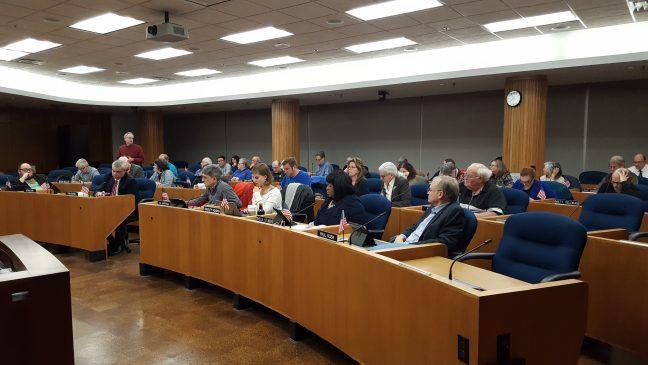In an effort to show solidarity with the indigenous community, the Dane County Board approved a resolution to stand with the Standing Rock Sioux water protectors and oppose the Dakota Access Pipeline.
Solidarity resolutions show the county’s commitment to issues that are even outside of their boundaries, Supervisor Hayley Young, District 5, said. The board only makes these types of resolutions on issues which are especially important, Young said.
The resolution was initially introduced in December 2016 by Dane County Board Chair Sharon Corrigan and co-sponsored by nine other supervisors. Young said the resolution has traveled through committees for additional consideration.
According to the resolution, Dane County and the Standing Rock Sioux share the same value of protecting water. The integral role lakes and rivers play in Dane County reinforces that value, the resolution added.
Dane County also shares a similarity with North Dakota in the way they were originally settled by Native Americans, according to the resolution.
The County Board also approved a resolution for The Program Evaluation of Racial and Social Equity in Dane County Contracting.
The program, which was initially proposed in November 2016, aims to increase the share of economic prosperity that communities of color have in the county, according to the resolution. This will be completed through investments into contracts that employ members of those communities, the resolution added.
Young said a subcommittee has scored various plans since the resolution’s proposal. After this was complete, Young added, they recommended the highest scoring contract to the executive committee.
Slow but steady: A look at community efforts since Race to Equity report
The organization the committee selected, Young said, has a lot of expertise in reviewing how cities contract out their work. The organization has previously given municipalities recommendations on how to improve their processes and how to make them more inclusive, Young added.
“We may not have control over a large jurisdiction, but how we spend our money, the way that we’re doing contracting — we want to be consistent in our values of promoting equity and inclusion,” Young said. “So, I think that this is a great step forward.”


